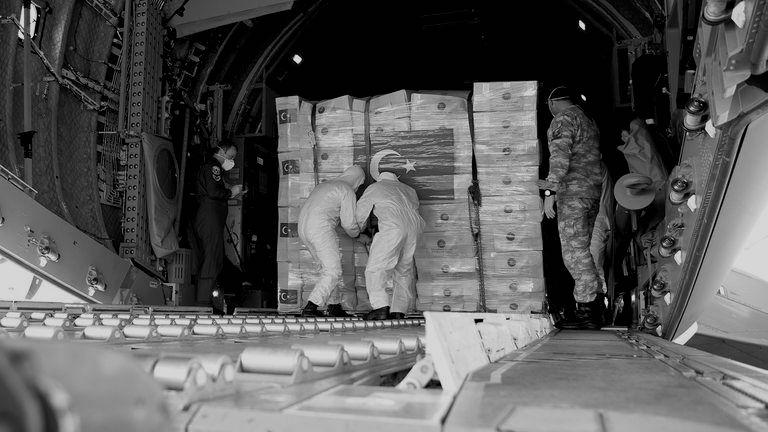High priorities in PPE lead to missed opportunities

The NAO has just published a report criticising the government for using a ‘high priority lane’ where suppliers that were known to MPs were prioritised for public contracts for protective equipment, often at high values. Thread follows. https://www.nao.org.uk/report/government-procurement-during-the-covid-19-pandemic/
It isn’t hard to see why this is a problem, good suppliers with a history of supplying PPE were overlooked in favour of suppliers with personal connections to government, many of whom had no history of supplying PPE.
It is reasonable to ask whether some of these suppliers had any business being in the supply chain, but that would overlook the state of crisis that the government faced. Stories of NHS staff without any protection were appearing almost hourly. https://www.itv.com/news/2020-04-20/hospital-workers-angry-at-ppe-delays-as-death-toll-tops-16-000
The government had to act and quite reasonably Matt Hancock responded with a commitment to do whatever was necessary to find PPE. The challenge wasn’t to find PPE, it was to find PPE within days or hours. https://www.gov.uk/government/news/government-sets-out-plan-for-national-effort-on-ppe
The rush led to hourly updates on a transport of gowns from Turkey, many of which didn’t meet required standards: https://metro.co.uk/2020/04/20/raf-flight-takes-off-bring-vital-ppe-uk-turkey-12584480/
It was clear that multiple buyers were yanking on the same supply chains, often with poor outcomes. In March a dedicated sourcing team of Deloitte professionals had been set up within the Cabinet Office to find the PPE the country needed from anywhere it could. https://twnews.co.uk/gb-news/useless-deloitte-accused-of-ppe-failings-amid-covid-19-deal-secrecy
In an environment where traditional sources of supply were proving questionable, it was entirely right to look for alternative suppliers, it is also reasonable to expect that all governments who bought PPE during the spring were facing similar challenges.
For instance, a joint consignment for the island of Ireland never arrived from China because the buyers were outbid: https://www.bbc.co.uk/news/uk-northern-ireland-52091054
By April the team was being deluged with a blizzard of offers to source PPE for the government from firms and members of the public. Unable to cope with the volume of offers, frustrated suppliers began to complain to the press at their inability to get government to buy their PPE.
The optics were terrible, members of the public were able to insinuate that they had a ready solution to the government’s problem could be found if only government would listen. It didn’t matter that these people had no history of trading in PPE.
The builders, bar owners and battery makers who wanted to switch their business to supplying PPE during lockdown had expected an easy ride, when that didn’t happen, it was easy to make the government look bad. https://twitter.com/AceOn_Group/status/1252498417517019136
As the blizzard of offers and poor press continued, MPs, Lords and donors had also become agitated, they had joined the list of people who were recommending companies to supply PPE.
They had not questioned whether adding to the growing queue of recommendations might have been unhelpful, instead they were starting to complain about a lack of feedback from government. As the volume of recommendations became unmanageable government had to act.
A section of the Deloitte team was told to prioritise recommendations from MPs and others who had close links to government. In attempting to ameliorate complaints from those closest to them, the government had probably just made the situation worse.
Now it not only had to contend with the likely losses from using unregulated supply, but now it was relying on a process that flew in the face of normal procedures designed to prevent conflicts of interest influencing public procurement.
What isn’t clear, is whether the government thought that their high priority lane would offer greater insurance against loss, or whether it was just an expedient mechanism for sifting offers to supply PPE, but the NAO found that government thought fast lane companies were “more credible”.
NAO findings show that fast lane companies won contracts at ten times the rates of other suppliers, so accusations of conflict of interest cannot be avoided and there now needs to be an account of what vetting occurred here.
Another finding was that the government had fallen short on transparency and publishing. I’m more than willing to accept that the job of getting all of the information in order before publishing is harder than we might think, but delays aren’t a ‘good look’.
So in conclusion, it would be churlish to suggest that there was an easy answer to this problem, any government would have struggled with these challenges, and every government would have experienced some losses and fraud in the panic to buy PPE.
But our own report into pandemic purchasing across Europe shows that some countries did not need to do away with competitive tendering during the pandemic, and many others were much more controlled in the use of direct awards https://spendnetwork.com/european-procurement-around-covid-our-data-analysis/
What is becoming clear is that the formal procurement procedures are there for a reason, they provide a genuine safeguard when it comes to protecting public money and we should start to think about how full procedures can be reinstated.
It is also clear that transparency also has a critical role to play in making sure that we secure value for money, there will be significant lessons to learn from our pandemic procurement, chief amongst them will be “keep the receipts”.



